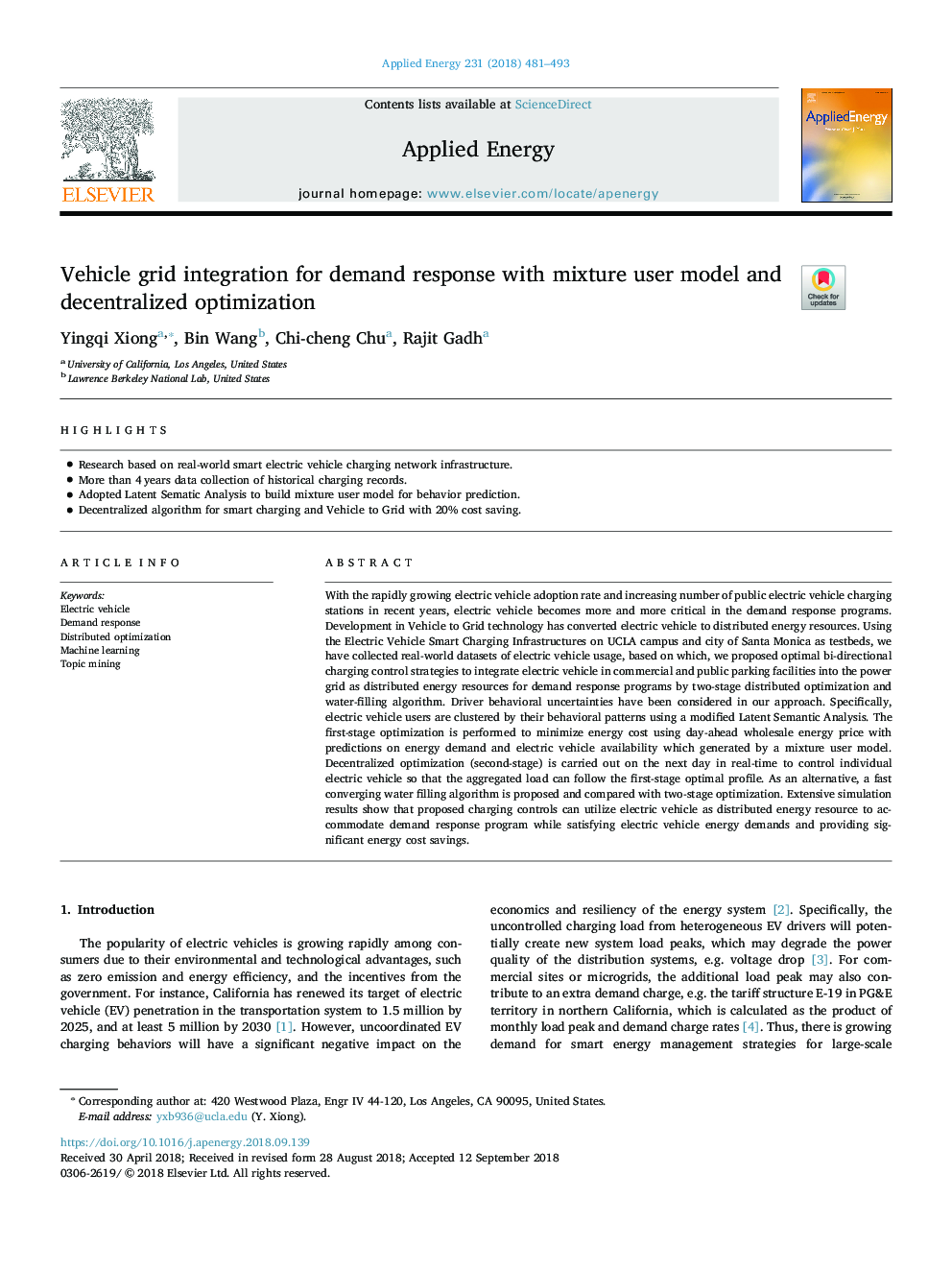| کد مقاله | کد نشریه | سال انتشار | مقاله انگلیسی | نسخه تمام متن |
|---|---|---|---|---|
| 10225276 | 1701164 | 2018 | 13 صفحه PDF | دانلود رایگان |
عنوان انگلیسی مقاله ISI
Vehicle grid integration for demand response with mixture user model and decentralized optimization
ترجمه فارسی عنوان
ادغام شبکه خودرو برای پاسخگویی به تقاضا با مدل کاربر مخلوط و بهینه سازی غیر متمرکز
دانلود مقاله + سفارش ترجمه
دانلود مقاله ISI انگلیسی
رایگان برای ایرانیان
کلمات کلیدی
خودرو الکتریکی، پاسخ تقاضا، بهینه سازی توزیع، فراگیری ماشین، معدن موضوعی،
موضوعات مرتبط
مهندسی و علوم پایه
مهندسی انرژی
مهندسی انرژی و فناوری های برق
چکیده انگلیسی
With the rapidly growing electric vehicle adoption rate and increasing number of public electric vehicle charging stations in recent years, electric vehicle becomes more and more critical in the demand response programs. Development in Vehicle to Grid technology has converted electric vehicle to distributed energy resources. Using the Electric Vehicle Smart Charging Infrastructures on UCLA campus and city of Santa Monica as testbeds, we have collected real-world datasets of electric vehicle usage, based on which, we proposed optimal bi-directional charging control strategies to integrate electric vehicle in commercial and public parking facilities into the power grid as distributed energy resources for demand response programs by two-stage distributed optimization and water-filling algorithm. Driver behavioral uncertainties have been considered in our approach. Specifically, electric vehicle users are clustered by their behavioral patterns using a modified Latent Semantic Analysis. The first-stage optimization is performed to minimize energy cost using day-ahead wholesale energy price with predictions on energy demand and electric vehicle availability which generated by a mixture user model. Decentralized optimization (second-stage) is carried out on the next day in real-time to control individual electric vehicle so that the aggregated load can follow the first-stage optimal profile. As an alternative, a fast converging water filling algorithm is proposed and compared with two-stage optimization. Extensive simulation results show that proposed charging controls can utilize electric vehicle as distributed energy resource to accommodate demand response program while satisfying electric vehicle energy demands and providing significant energy cost savings.
ناشر
Database: Elsevier - ScienceDirect (ساینس دایرکت)
Journal: Applied Energy - Volume 231, 1 December 2018, Pages 481-493
Journal: Applied Energy - Volume 231, 1 December 2018, Pages 481-493
نویسندگان
Yingqi Xiong, Bin Wang, Chi-cheng Chu, Rajit Gadh,
